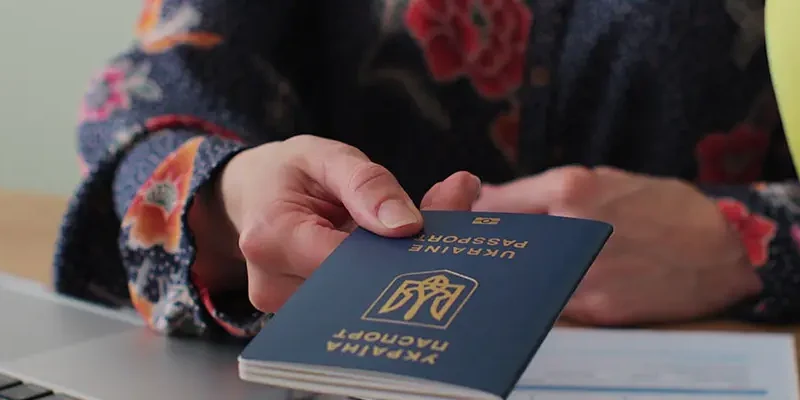The Pereira Sessions Case: A Monumental Case for the Interpretation of Deportation and Removal Cases

The United States immigration system is complex and constantly changing. For many people facing the possibility of deportation, understanding and navigating these complexities can be a very difficult task. One of the most significant cases in recent years in the interpretation of the deportation law is the Pereira Sessions case. This Supreme Court ruling in June 2018 has not only had a profound impact on how deportation cases are handled but has also offered new hope for many immigrants seeking to remain in the United States.
In this article, we will discuss in detail the case and its implications for legal defense against deportation, reopening deportation cases, and how to appeal a deportation order in the United States. If you or a loved one are facing a similar situation, it is crucial to understand your rights and the legal options available.
The Pereira Case: Context and Chronology

The Pereira Sessions case is rooted in the story of Wescley Fonseca Pereira, a Brazilian citizen who arrived in the United States in 2000 with a temporary visitor visa. His visa expired in December of the same year, but Pereira decided to stay in the country and build a life. In 2006, he was arrested for driving under the influence, which led to an investigation of his immigration status. As a result, he was issued a notice to appear, a crucial document in the deportation process, but it did not include a specific date and time for his immigration court hearing.
This seemingly small error had significant consequences. Pereira did not appear in court, resulting in an in-absentia deportation order. The absence of a date and time on the notice to appear led to a legal challenge that ultimately reached the Supreme Court. The central question was whether a notice to appear without a specific date and time could be considered valid.
Legal Defense Against Deportation: What Does the Pereira Case Mean for You?


The Supreme Court’s decision in the Pereira case was clear: a notice to appear without a specific date and time does not meet legal requirements and therefore cannot be considered valid. This ruling has enormous implications for those who are in the deportation process or who have already been deported due to a defective notice to appear.
For those facing a deportation order, this ruling offers new hope. If you received a notice to appear similar to Pereira’s, you may be able to request the reopening of your deportation case. This can be relevant if the deportation order was issued in absentia due to the lack of a date and time on the original notice.
Motion to Reopen Deportation Case

One of the main legal options available to those affected by the ruling in the Pereira case is filing a Motion to Reopen the deportation case. This legal remedy allows individuals to request that their case be reopened based on new evidence.
To file a successful motion, it is essential to have legal representation in deportation cases. An experienced immigration attorney in Dallas can evaluate your situation and prepare the motion with a compelling argument before the immigration court. This is a unique opportunity to correct past mistakes and fight for your right to remain in the United States.
Urgent Legal Defense Against Deportation
Time is a critical factor in deportation cases. If you have received a notice to appear or a deportation order, it is crucial to act quickly. The ruling in the Pereira Sessions case has created a window of opportunity for many immigrants, but that window will not remain open forever. If you are in an urgent situation, do not wait. Contact an immigration attorney as soon as possible to discuss your legal options and how to proceed.
Legal Representation in Deportation Cases


Proper legal representation is essential in any deportation case. Immigration attorneys in Dallas have the experience and knowledge necessary to navigate the complex legal system and fight for your rights. Whether you need to appeal a deportation order, file a motion to reopen your case, or simply understand your rights under an order of supervision, an attorney can provide the guidance and support you need.
Rights Under an Order of Supervision
For those who have received a deportation order but have not been deported, you may be under an order of supervision. This situation can be complicated and stressful, but it is important to understand that you still have rights. Under an order of supervision, you must comply with certain conditions imposed by Immigration and Customs Enforcement (ICE), such as regularly reporting to ICE offices and refraining from committing crimes.

However, being under an order of supervision also gives you the opportunity to continue fighting your case. Explore options such as appealing the deportation order or even applying for immigration relief if you meet the necessary requirements.
How to Appeal a Deportation Order in the United States?
Appealing a deportation order is a complicated process, but with the right legal strategy, it is possible to overturn the decision. The Pereira Sessions case has emphasized the importance of accuracy in the legal process, and this extends to appeals. If you believe your deportation order was issued unfairly or based on incorrect information, you have the right to appeal.


Appealing the deportation order typically must be submitted to the Board of Immigration Appeals (BIA) within a specific timeframe. It is crucial that this process is handled with precision and professionalism, and this is where an experienced immigration attorney can make a significant difference.
Conclusion
The Pereira Sessions case is a turning point in the interpretation of immigration laws in the United States. For those facing deportation, this decision offers new opportunities to fight for their right to remain in the country. However, these opportunities can only be seized if you act quickly and with proper legal representation.
If you or a loved one is facing a deportation order or needs legal advice on how to proceed after the Pereira ruling. Contact our immigration attorneys in Dallas today, we are here to help you protect your rights and fight for your future in the United States. Call us now to schedule your appointment!
Buscar
Categorías
Populares
Recientes
Programe una cita con nuestro equipo de inmigración
Para cualquier duda, comuníquese con uno de nuestros asesores legales
+1 (214) 501-0560
LUNES - VIERNES:
8:00 AM - 6:00 PMSÁBADOS - DOMINGOS:
Cerrado








